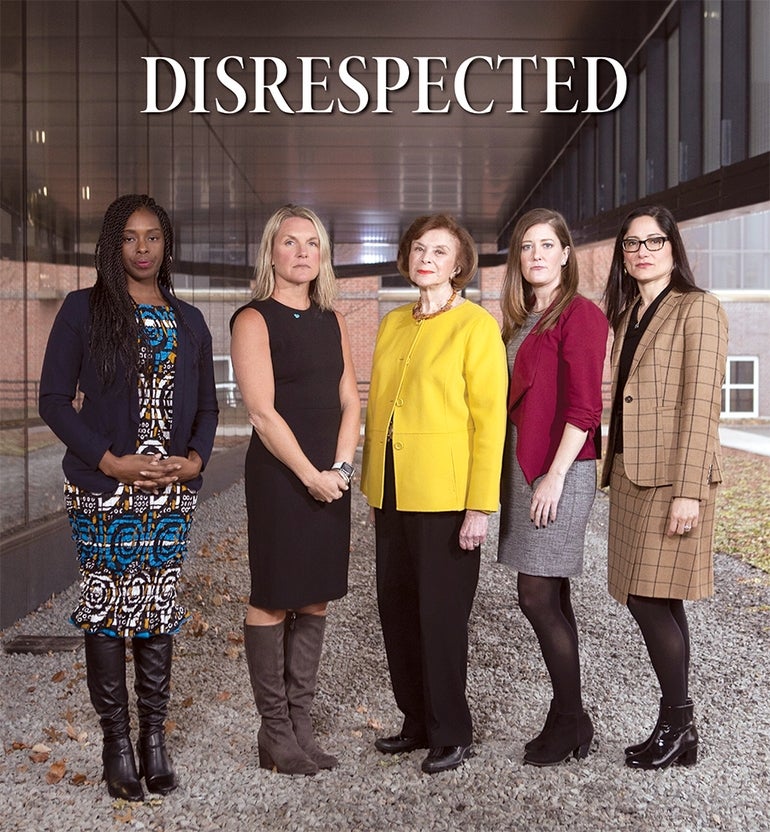These stories from seven Central Mass. women professionals detail how sexual harassment has long-lasting and wide-ranging impact on people and company productivity.
Get Instant Access to This Article
Subscribe to Worcester Business Journal and get immediate access to all of our subscriber-only content and much more.
- Critical Central Massachusetts business news updated daily.
- Immediate access to all subscriber-only content on our website.
- Bi-weekly print or digital editions of our award-winning publication.
- Special bonus issues like the WBJ Book of Lists.
- Exclusive ticket prize draws for our in-person events.
Click here to purchase a paywall bypass link for this article.
Long before we knew her as the 94th president of the Massachusetts Senate, Harriette Chandler worked as a graduate teaching assistant. Chandler, who went on to earn her Ph.D., remembers the experience with angst.
“The professor made it very clear to me that he expected more than just my teaching assistance. He expected sexual favors,” said Chandler.

As one of the only women on campus, she felt like she was alone. “I laughed the first time he said it,” she said, “to break the uncomfortable silence.”
Chandler feared without the paid position, she would have to abandon her graduate studies altogether.
“I knew if I made a fuss, it would ruin my academic career, and I would be called a cry baby,” said Chandler. “There was no one to turn to. I wanted to say, ‘Help me. This is disgusting.’”
Instead, she applied to be a Radcliffe Fellow at Harvard University and was relieved when she was accepted.
“I still had to get through the rest of that semester. I stayed as far away from him as I could,” she said.
Chandler’s experience is hardly a thing of the past. I sat down with more than a half dozen business women from Central Massachusetts to discuss their experiences with workplace sexual harassment. Even in situations where behavior from a superior or colleague didn’t rise to black-and-white sexual harassment, these gray area problematic behaviors still had lasting ramifications impacting the women’s lives and, ultimately, the performance of the company.
“Small slights over time can turn into a culture, and a culture where sexual harassment is accepted is toxic, dangerous, and puts everyone at risk,” said Erin Jansky, the director of human resources from the Worcester Housing Authority.
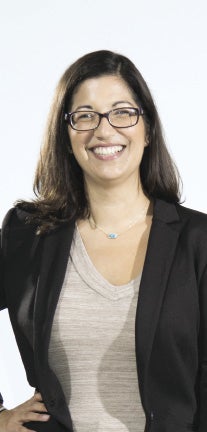
As they’ve grown more experienced, these women have learned how to effectively react by shutting down bad behaviors right away, reporting exchanges making them feel uncomfortable, or removing themselves from a company altogether. Still, each situation creates an internal negotiation where women must weigh their self respect vs. their careers.
“Many victims just take it, try to brush it off, forget it happened, laugh it off, or don’t recognize it themselves as sexual harassment,” said Jansky.
Jansky warns employers against looking the other way. A “Better safe than sorry” ethos slowly is taking root because of women who are willing to share their experiences and set a new expectation for professionalism.
[Editor's Note: Some exact details of situations and company identifications were purposefully left out of this article, as a courtesy to the women who shared their experiences. For more information on this decision, read this column from Editor Brad Kane.]
“He would constantly comment on my legs.”
A decade into Sherri Pitcher’s consumer electronics career, she was offered a position during a trade show in Las Vegas. The interview took place in a hotel room, which she found odd, but agreed to at the request of the vice president.
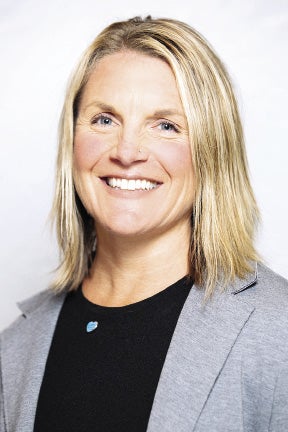
Three people were in the room: Pitcher, the man who would become her immediate supervisor, and the VP himself. She was uncomfortable, but nothing inappropriate occurred. She got the job.
Pitcher worked remotely from Worcester, although the company was based on the West Coast. She was the sole woman on the sales team and rarely minded when co-workers saw her as one of the guys. The job required a lot of travel, including a number of trips with the VP.
“He would always say really uncomfortable things to me,” she said. “He would constantly comment on my legs.”
One day, during lunch, he came up behind her and made a comment so vile she felt sick. Her immediate thought was, “Did I ever do anything that made him think that it was okay to say that to me?”
Her mind began to race, “If I speak up, will it hurt my career? Will it prevent me, somehow, from getting promoted, getting a bonus, getting a new account?”
Pitcher decided to let it go. Trips alone with the VP became excruciating. Within two years, he was dismissed due to an harassment case involving another woman.
“I want to say to him, ‘Look, I know you’re just trying to be funny, but I really would rather you didn’t speak like that to me,’” Pitcher said. “I didn’t have the experience or the wisdom back then, but now I have the confidence.”
Today, she is the chief LifeDesign officer at Fidelity Bank of Leominster.
“This is for last night.”
Michelle Miller, the director of the Center for Women & Enterprise of Central Mass., said even when troubling behavior doesn’t come from a superior, harassment can have a disempowering impact, manifesting its own disparity.
“Often times, the comments sound like a compliment, which makes it even harder for the person who hears it to react, for fear of being viewed as mean or unable to take a joke,” Miller said.
She has experienced this firsthand, and on at least one occasion, from a patron of women’s empowerment.
“He came up behind me,” she remembers, “and standing back there, handed the check around to the front of me, and said in my ear, ‘This is for last night.’”
The man immediately laughed it off.
“I was standing in a room full of donors trying to figure out what to say. I ended up just staying silent,” Miller said.
Later, at home, she felt her mood sour.
“My feelings were not only because of what had happened, but anger with myself for not having done anything about it,” she said.
Miller believes women commonly blame themselves for inviting behaviors or failing to report bad ones. She finds, in some cases, these emotions can even supersede anger toward the perpetrator.
“When are we going to find time for an affair?”
As the director of human resources for Family Health Center of Worcester, Yuisa Pérez Chionchio is used to navigating uncomfortable conversations.

“It can be challenging to have five generations working together,” Pérez Chionchio said. “I find the older generation of men, for some reason, feel the need to touch me on my shoulder in situations when the younger generation would never consider doing so.”
It’s not just men. “I’ve noticed that older women sometimes comment on what I'm wearing and compliment how it shows my figure,” she said. “That doesn’t make me feel comfortable either.”
During the onboarding process for new employees, Pérez Chionchio shares a few of her own experiences with workplace harassment. One incident, which took place prior to her employment at Family Health Center, is especially jarring for trainees to hear.
The episode took place while Pérez Chionchio was speaking to a supervisor from another department. The two were bonding over their respective families’ packed activity schedules when he asked, “If you’re so busy and I’m so busy, when are we going to find time for an affair?”
In the moment, Pérez Chionchio laughed it off and walked away. She was so embarrassed by the exchange she couldn’t bring herself to tell anyone, never mind report the comment to HR.
She couldn’t get it out of her head.
Now, she encourages women to communicate their feelings in the moment, emphasizing that ignoring inappropriate behavior only serves to normalize it.
“We want people to process uncomfortable experiences and address them so they can continue doing the best job they can do,” she said. “A woman’s intelligence and attractiveness should never become qualities she fears in herself.”
“This is LinkedIn, not Tinder.”
Julie Bowditch can’t be bought – not at the bar and certainly not on LinkedIn.
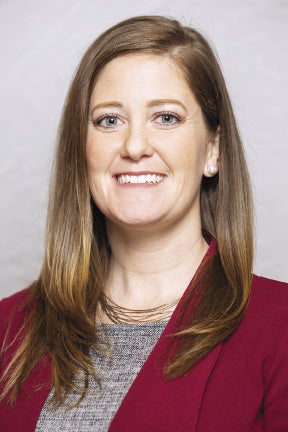
Bowditch works in fundraising in Worcester, an occupation with inherent power disparities. Donors have capital, and her nonprofit organization wants it. Making philanthropists feel appreciated is a requirement of the job, but never at the cost of her self-respect.
She’s been tested before. Years ago, she was out with friends at a bar when a prospective donor approached her and suggestively placed his hand on her back. Bowditch immediately motioned for one of her companions to save her and indicated she was in a relationship, even though she wasn’t. “I wanted to tell him to back off,” she said.
But, she didn’t. Bowditch felt concerned he might pull back his donation or misconstrue the exchange to her employer if she brought it up. She decided to let it go.
With experience comes insight. Bowditch doesn’t make excuses for offenders anymore. She shuts inappropriate behavior down on the spot, without apology, and her performance never suffers for it. She hopes young professionals entering her field will be empowered to do the same from day one.
More recently, a male engineer she didn’t know reached out to her on LinkedIn with the opener, “Hello gorgeous how are you doing?”
She shot back, “You got your apps mixed up. This is LinkedIn, not Tinder.”
She posted a screenshot of the exchange to her Facebook page, saying: “PSA: don’t be this person. LinkedIn is for professional interactions. If you talked to someone like this in the workplace, there would be consequences. It’s just common sense. #ew #linkedOUT.”
The post received 73 comments, seven from women saying that had happened to them on LinkedIn, too. The feed agreed: A professional platform is no place for pickup lines.
Reporting sexual behaviors can become particularly precarious when incidents carry over to a third place, a term coined by American urban sociologist Ray Oldenburg to signify neutral environments outside of home or work. Codes of conduct in third places, including social media, often prove ambiguous.
“The workplace has become much more casual: Open workspaces, casual dress codes, lounge areas, social media, and social events have made the workplace an extension of our personal lives,” said Jansky. “While the majority of workers still understand the basics of decorum, civility, and professionalism, there are some who have a hard time making that distinction and feel emboldened to make inappropriate jokes or comments, gestures, advances, and sometimes touching or speaking in a way that they might with friends at a bar, or hanging out at home.”
“You’re too pretty for that.”
Kristen Liberty works in commercial insurance, interacting with trucking companies, construction contractors, and carpenters. She is still surprised by the frequency with which clients say she “can’t possibly know about trucks or tools because she is too pretty for that.”

“It becomes frustrating to always second guess what you've trained yourself on for years, because you’re asked, ‘Are you sure? Do you want to double check with the boss?’" Liberty said.
Nancy Leong would define this client-provider relationship as an institutional power disparity.
“When a workplace is also a for-profit business, sexual behavior involving institutional power disparities can affect one aspect of the institution's mission: The business's profits.” Leong writes in her 2019 Washington University Law Review article, “Them Too.”
She notes sexual behaviors – consensual or not – are inevitably harmful to third parties in the workplace.
Liberty has learned to put her foot down when customers are distracted by her appearance. She no longer hesitates to tell them, “I've seen this a million times, and I am confident in my work.”
“I’m not going to stand. I’m going to leave.”
Erica Ayisi is an international journalist who got her start at Worcester News Tonight/Charter TV3. Ayisi has learned to advocate for herself when she is made to feel uncomfortable.
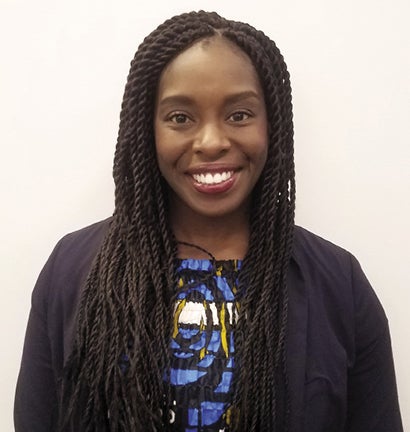
“Working as a journalist in Ghana, a manager told me to stand as punishment for being late to the newsroom, in front of the news team,” she said.
She refused to be put on display, announcing, “I’m not going to stand. I’m going to leave.”
Ayisi walked out of the room and resigned shortly thereafter.
“When a man in power does something uncomfortable to you, do something in addition to saying something,” she said. “You are not responsible for his actions and lack of emotional intelligence.”
“What should I have done differently?”
Every woman interviewed for this story reported having the same impulse when faced with the advances of someone who held institutional power. They first placed the blame on themselves, asking, “What should I have done differently?”
The correct answer is more difficult than it sounds: Speak up. Expressing concerns politely and immediately can stop a culture of harassment from flourishing. Responsible organizations will already have a protocol in place.
Worcester insurer Fallon Health prides itself on maintaining an environment of collaboration and compassion and has catered its HR policies to suit, said Jill Lebow, Fallon senior vice president and chief human resources officer.
“Rarely do workplace harassment issues come up,” Lebow said in an email. “When they do, we have a robust policy in place to maintain a work environment that is comfortable, professional and protects an individual’s dignity and respect.”
If a complaint is not adequately addressed by HR professionals, Jansky said to contact the Massachusetts Commission Against Discrimination.
Consider your context
Is there ever an appropriate time for a professional superior to express romantic interest in you? The short answer is no.
CEOs, financial backers, influential donors, and board members who fail to consider their own seismic influence will inevitably stand in the way of an organization’s success.
It takes a lot of gumption to raise concerns when someone above your paygrade makes you feel uncomfortable. I find it helps to imagine a young woman I care about being placed in the same situation.
I think, “How would I help her?”
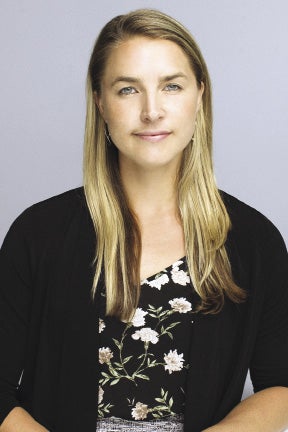
As for the men in our midst, please consider your context. Pick out your pleasantries with the same care you’d use to select a playlist. I’ll bet the music you workout to is different than the music you’d queue up for a dinner party with the in-laws.
It’s not walking on eggshells; it’s civility.
Sarah Connell is a freelance journalist living in Worcester.
